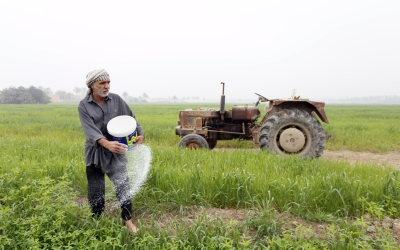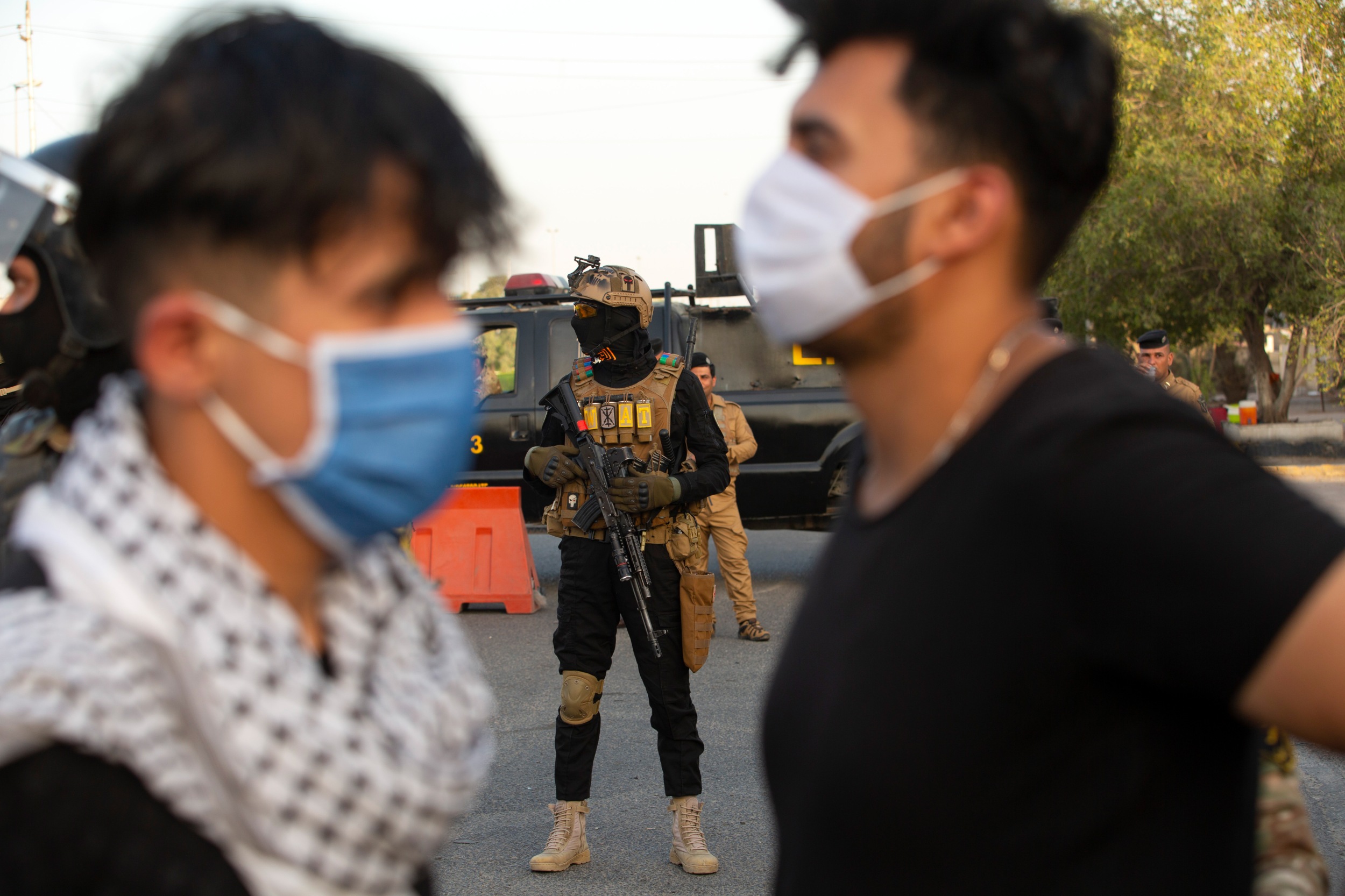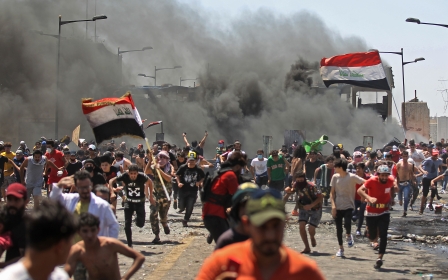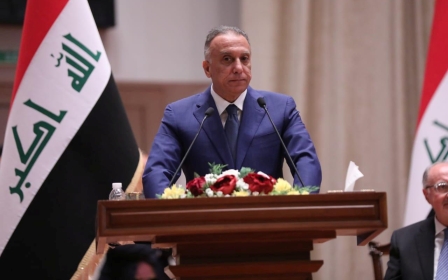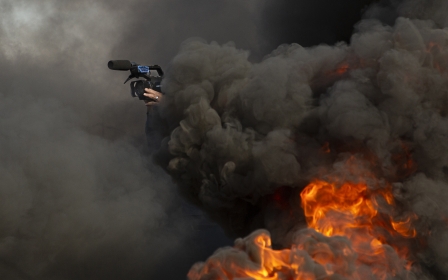Iraq hurtling towards a financial crisis that could leave millions unpaid
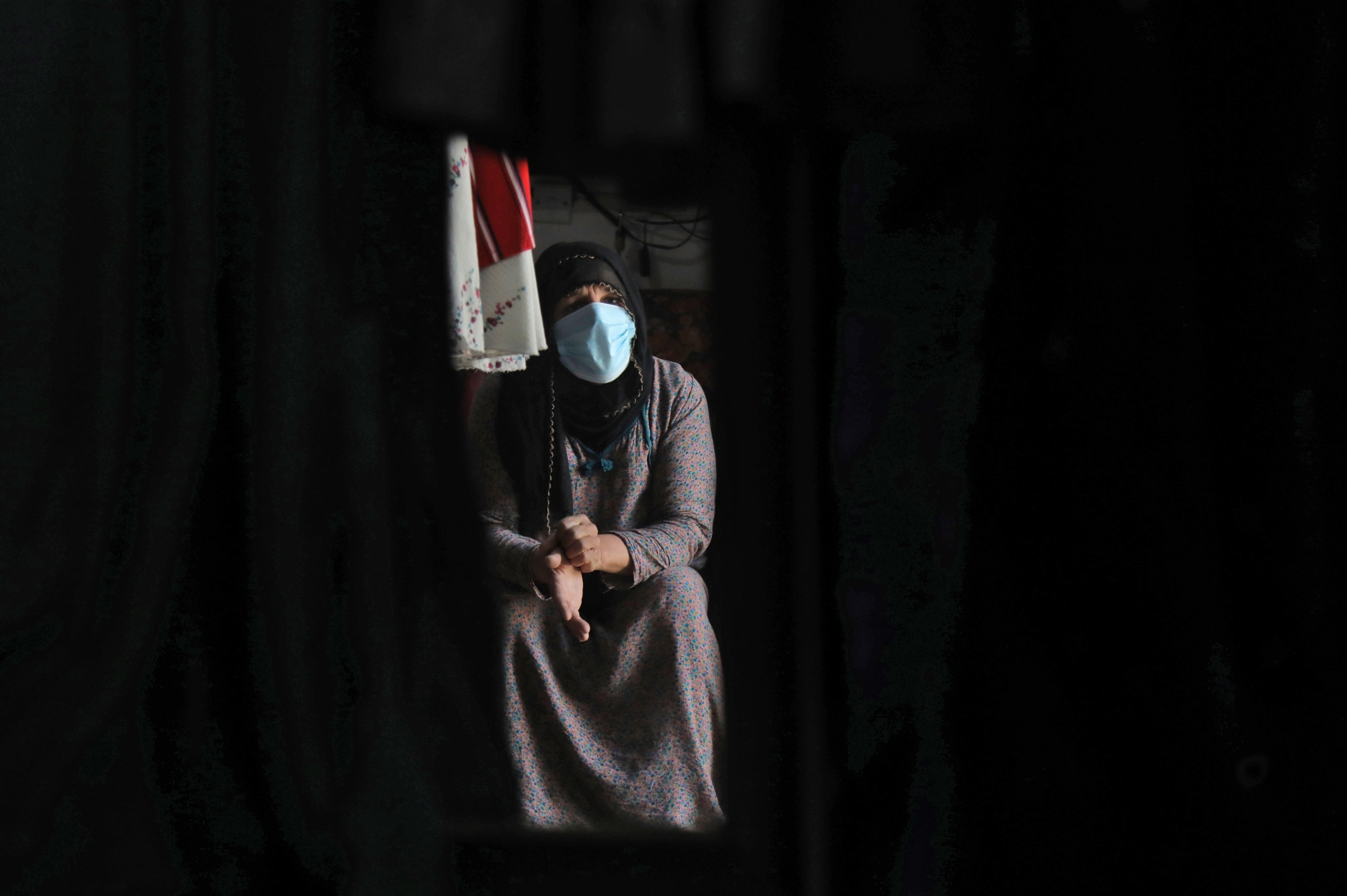
Just a month into his fledgling rule, Iraqi Prime Minister Mustafa al-Kadhimi is facing an economic crisis that could leave millions of Iraqis out of pocket and may spell fresh unrest in the beleaguered country.
The recent sharp decline in oil prices, the coronavirus pandemic and months of political turbulence have left Iraq’s financial situation in tatters.
Appearing on the horizon is Baghdad’s inability to secure the next two months’ salaries for public sector employees, or pay pensions and benefits, a loss of income that would affect the majority of Iraqi households.
Officials fear such an outcome could stoke widespread unrest, threaten the new government and see public institutions, including oil fields, targeted by angry protesters.
Vanishing oil revenue
New MEE newsletter: Jerusalem Dispatch
Sign up to get the latest insights and analysis on Israel-Palestine, alongside Turkey Unpacked and other MEE newsletters
Iraq is the Organisation of the Petroleum Exporting Countries' (OPEC) second-biggest oil producer.
Its economy relies heavily on the revenues of crude oil exports, which represent more than 90 percent of the state treasury’s resources.
Kadhimi needs 12 trillion dinars ($10bn) to secure the June and July salaries of more than four million employees, retirees and beneficiaries, as well as cover the expenses of the efforts against the coronavirus and food relief for low-income families.
However, an oil price war between Saudi Arabia and Russia in March sent the value of Iraq’s exports plummeting, and officials told Middle East Eye that over April and May they brought in no more than $3.49bn.
Although oil prices have begun to recover, with the price of a barrel reaching $36 over the past few days, Iraq’s shortfall in revenues casts a long shadow over June and July, as the country only receives the cash raised by exports two months after the sale.
“The crisis is real and unavoidable and hit all countries, but it appeared in Iraq more clearly, because the Iraqi economy depends... mainly on oil export revenues,” Faisal al-Essawi, a member of the parliament’s finance committee, told MEE.
"The state is obligated to pay the salaries of employees, retirees and aid to those entitled to it on schedule, but the crisis will be particularly evident during these two months.”
Disaster waiting to happen
Iraq’s over-reliance on oil has been seen by officials as a disaster waiting to happen.
A joint governmental-parliamentary committee was formed months ago to address the fiscal deficit and try to find additional resources other than oil to boost the country's annual financial budget resources.
The committee submitted a set of remedies and proposals to Adel Abdul-Mahdi shortly before he stepped down from the premiership earlier this year, but he ignored them.
A revised version of this draft has now been resubmitted to Kadhimi, in preparation for voting and approval at the weekly cabinet meeting on Tuesday.
The draft, a copy of which was obtained by MEE, lays out a set of urgent remedies to tackle what it describes as "the large deficit in financing the state budget due to the decline in oil and non-oil revenues, which caused an acute financial crisis."
Proposals included: stopping the disbursement of "unnecessary" government expenditures; limiting the financing of "high-priority" items; renegotiating with oil companies operating in Iraq under licensing rounds to review contracts and ease the financial burden on the state; taxing some sectors; stopping new appointments; and freezing grants and bonuses until further notice.
Allowances granted to the president, prime minister, speaker, ministers, MPs, diplomats, deans, judges and other governmental officials would be cut by 50-80 percent.
As for the rest of state employees, the draft suggests reducing the allowances attached to their salaries, as long as their final salary is no less than 500,000 dinars ($400) a month.
Other remedies include reducing pensions and stipends received by victims of the Baath regime under Saddam Hussein, which would prevent people from receiving more than one salary.
Salaries a 'red line'
The proposals, many of which have been leaked to the media during the past two weeks, have angered the majority of state employees and beneficiaries, who see their salaries as an "acquired right" that the government has no right to touch for any reason.
Many groups on social media have been created over the past week by unknown parties to mobilise against any government decisions aimed at reducing or affecting employees’ salaries.
One of the groups that was established on Facebook a week ago, bearing the slogan "Our salaries are a red line," attracted more than 270,000 members within days, most of whom are angry and anxious public employees.
Another group for university lecturers was established on messaging app Telegram under the name "Preserving Rights", and attracted more than 800 members within hours.
The comments and posts followed by MEE in both groups reflected an accumulated anger against government policies that "target employee salaries rather than pursue the whales of corruption," according to one commentator.
Dozens of employees and lecturers have called for mass demonstrations and civil disobedience in front of government departments if Kadhimi “dares” to cut their salaries.
"We are determined to overcome the [financial] crisis together,” the prime minister tweeted ahead of a cabinet session on Tuesday.
"We will not allow the solutions to the financial crisis to be at the expense of the rights of low-income employees, the retired and social care beneficiaries.”
The hours-long cabinet meeting did not result in any vote on the proposals. Instead, it was "decided to hold a special session to discuss the current financial crisis and the measures required," according to a statement from Kadhimi's media office.
Officials and observers have suggested that Kadhimi aims to absorb the momentum of those opposing his decisions and avoid sharp public reactions by postponing the discussion and approval of the draft.
'Everyone is convinced that the time has come to change our economic policy...or the Iraqi economy will collapse sooner or later'
- Faisal al-Essawi, Iraqi MP
“Everyone knows that affecting the salaries of employees… in light of the circumstances that Iraq is currently going through, would be a serious threat to government stability,” Ahmed al-Safar, a member of parliament's finance committee, told MEE.
“Those [employees] already suffer from high prices and inflation.
"Deducting their salaries will mean exposing them to additional pressure, and this will definitely lead to an explosion. Cutting salaries would cause popular frenzy and widespread demonstrations.”
Some specialists in the financial and business sectors believe the crisis can be overcome without reducing salaries.
Instead, it has been suggested, the government could purchase more dollars, borrow from banks, the International Monetary Fund (IMF) or friendly foreign countries, and postpone debt payments.
But these are all non-radical solutions to a chronic financial crisis. Officials think more needs to be done in the long-term.
Essawi says June and July’s issues can be overcome with a few painful, short-term measures, “but the problem of the budget deficit will remain”.
“We are not worried about the current crisis, we will overcome it in two or three months," he said.
"But if not, everyone is convinced that the time has come to change our economic policy and reduce dependence on oil revenues, or the Iraqi economy will collapse sooner or later.
“This is the first test for Kadhimi’s government, and the messages he sent to us suggest that he is serious about finding radical solutions to the problem.”
Middle East Eye delivers independent and unrivalled coverage and analysis of the Middle East, North Africa and beyond. To learn more about republishing this content and the associated fees, please fill out this form. More about MEE can be found here.



